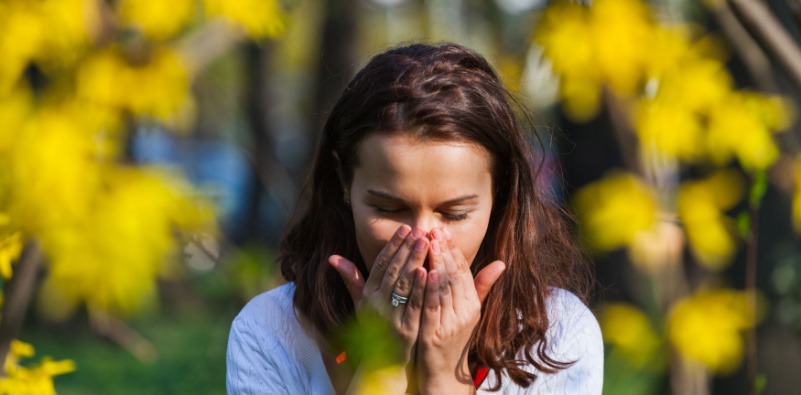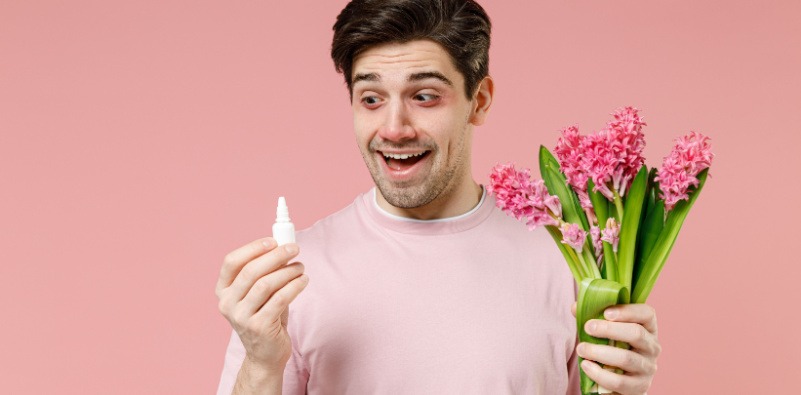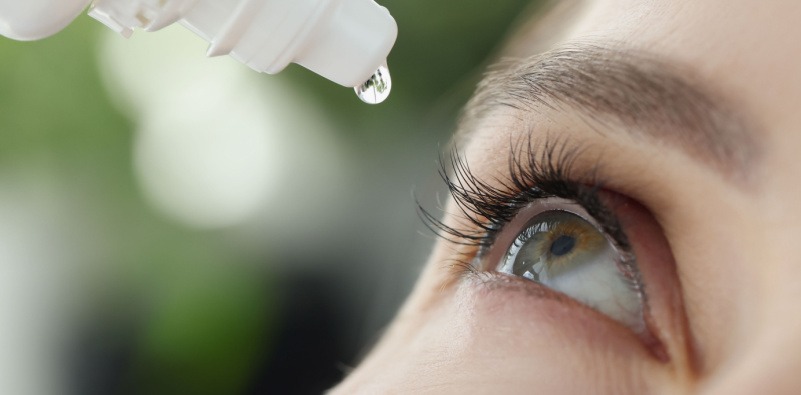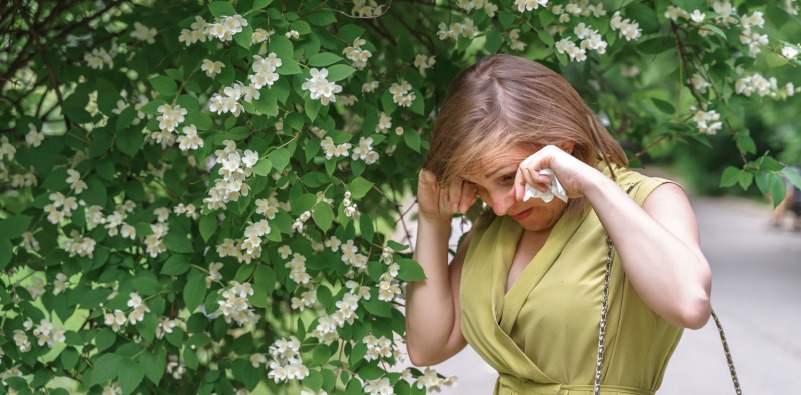How to relieve hay fever and allergy eye symptoms
Hay fever season is now upon us, causing uncomfortable symptoms for a significant portion of the population. In fact, a study done in 2020 found that hay fever can affect nearly 50% of the UK population, and around 37% reported symptoms for the first time since 2015. Read on for a helpful rundown on common symptoms, and our top tips for hay fever relief.
Do you have hay fever?

There are several symptoms of hay fever you may experience:
● sneezing or coughing
● headache and tiredness
● sore, red, itchy eyes
● an itchy throat, nose, or ears (possibly an earache)
● nasal congestion or a runny nose
What exactly is hay fever?

Hay fever is when your body reacts to the pollen in the air. Pollen is a powder produced by plants and is a part of their reproduction process. As such, the ‘pollen count’, i.e., how much pollen there is in the air, is typically highest from spring to the beginning of September. When your body reacts to pollen, it produces histamine, causing inflammation.
Reactions range from mild to severe and can cause loss of sleep, concentration issues and increased risk of asthma.
Hay fever treatment
Unfortunately, there is no permanent cure for hay fever – only relief. You can try and avoid being outside during high pollen count days by checking your weather forecast, which usually has an indicator for this, or by investing in air filters. However, it’s unlikely you’ll be able to avoid it completely, so we’ve compiled our top 5 tips on how best to manage your symptoms day to day.

- Wash your hands before you touch your face. This can reduce the transfer of pollen to your eyes, minimising irritation.
- Use eye drops as recommended by our optometrists to help relieve itchy, red, and sore eyes.
- Placing a cold, wet flannel over your eyes for 10-15 minutes every day can also provide some respite.
- Sunglasses can help, especially wraparound styles which give optimal coverage to block pollen, dust, and other irritants from reaching your eyes.
- Use over the counter antihistamines if you find them to be effective.
- Putting your clothes straight into the wash after a day out when pollen is rife will help to stop it from transferring to your eyes.
- Closing your windows when the pollen count is at its highest if indoors will reduce the chances of it making contact with your eyes. In extreme cases, your doctor may be able to offer immunotherapy, which slowly exposes the body to pollen, allowing you to build up tolerance prior to spring.
Need further info?

While over the counter eye drops may be helpful to some extent, it’s important to remember that everyone’s eyes are different, and that some eye drops contain ingredients which may not be suitable for your eyes, especially if you are a contact lens wearer.
We offer a variety of options to accommodate your specific needs, and have optometrists with Independent Prescribing qualifications, who can prescribe medicated eye drops, or ointments after assessing you if they
feel it would benefit you.
Don’t suffer in silence! Get in touch with our opticians in Whitley Bay if you need any further advice or visit us in person.

